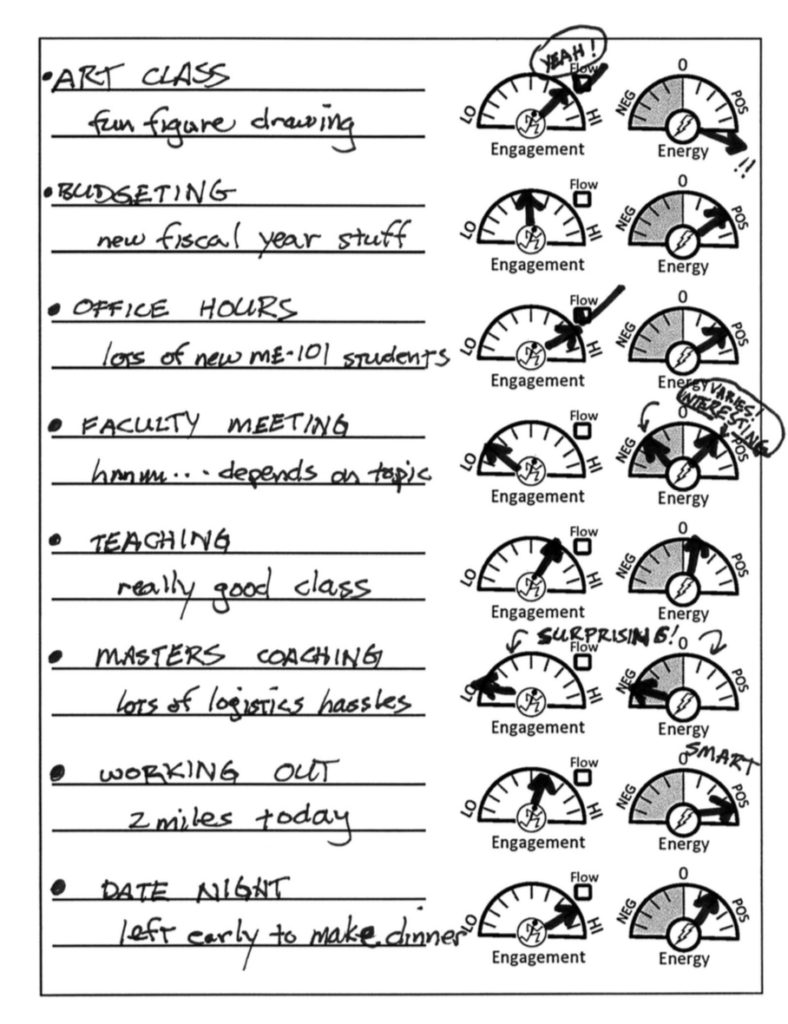
Throughout the years I have been experimenting with different ways to keep myself focussed throughout the day. Having and maintaining focus might be one of the top things among us productivity nerds. The whole idea is of course that you get more bang for your buck: if you could just maintain your focus every single second of the day that you are awake, you get more ‘day’ and thus become more productive. Though this premise still sounds very appealing to me, recently I have become more focused on energy management than these time/focus management kind of principles. In this article, I will share with you what (to me) are the differences between these and how this change has (positively) impacted my life.
What you will read when you continue
Productivity tools and their limits
Productivity is the act of getting the most output per unit of time spend.
There are 24 hours in a day, whether you like it or not. However, in the world of productivity, not all hours are created equally. With the latest trend, tool or tip, you can squeeze out a bit more work within that same time frame. And more output = better. But is it? Methods like the Pomodoro Technique, Time blocking and The Morning Miracle promise you that time is under your control. During the minutes that you decide, you can achieve the most, regardless of the time, season or how you feel. This is in line with the rationalization of society where we believe that everything can be moulded to our liking. The human determines if, when and how something happens.
However, humans are inherently part of nature and the systems that they live in. And thus, not everything is as mouldable as we would like it. Plans, people and the world around us change. We don’t wake up the same way every day, so we shouldn’t expect to perform the same every day.
What we can do, however, is make sure that we create an environment in which our bodies and minds thrive. To not focus on a specific method, but take care of ourselves in such a way, that we feel best within the context of that day.
Energy management
So what is energy management? The process of energy management is setting up your day in such a way that:
- You take care of yourself in a way that you have the most energy, given your current constraints.
- You organise your day in a way that takes into account the different energy levels you have during the day.
- You recognize your physical and emotional limitations.
Insight into your preferences
Before you can ‘manage’ your energy, it is important to know what gives you energy. A great method I have used in the past is the energy diary of the book Designing Your Life by Bill Burnett and Dave Evans. The main concept behind this energy diary, is to regularly check in within a day, write down what you are currently doing and give it a grade from 1 – 10 on how energized you feel.

After collecting this data, it is time to reflect on these insights. My personal preference is to use a journal for this. The internet is full of nice prompts such as these, but if you want to get more in-depth I recommend the book The New Diary by Tristine Rainer. She describes a whole plethora of journaling techniques, among which is the reflection technique. Here you sit down and write down any insights about your energy diary. By writing (instead of just thinking about it), assumptions become more apparent and patterns easier to see.
Lastly, for those who like to do online tests: the Automated Morningness-Eveningness Questionnaire – or AutoMEQ in short – is a scientific-based test that helps you determine if you are a morning or an evening person. Or in more fancier terms: what your chronotype and circadian rhythm are. I’ve come across this test while listening to the podcast of Ali Abdaal with Russell Foster, a professor of Circadian Neuroscience at the University of Oxford. His book Life Time is still on my to-read list.
Knowing your sleep rhythm and adjusting your day around this is, is incredibly important for your energy levels throughout the day, but also for the working of your immune system as well as preventing a wide variety of diseases. Check out the book Why We Sleep by Matthew Walker for an in-depth overview of all the benefits that a good night’s rest will give you.
My preferences
So, how have I implemented this in my own life? My main energy drivers are sleep, my morning routine and people.
Sleep
Getting a good night’s rest is a very important factor in how I perform and feel throughout the day. There are a couple of things I do to improve my sleep:
- Ensure that I sleep at least 8 hours per night.
- Try to go to bed and wake up around the same time (22:00 – 06:00)
- No mobile phone in bed, just my e-reader.
- Read for ~30 minutes before sleeping.
- Little to no alcohol consumed (major impact on my sleep quality)
- More recently: I started taping my mouth shut throughout the night. I will share the link to a more in-depth article when it is ready.
Morning routine
After waking, I take a couple of actions to get me energized for the day:
- Immediately get out of bed when the alarm clock goes off (also to make sure not to wake up the wife. Happy wife, happy life).
- Jump straight into a cold shower. Check out this podcast with Dr. Susanna Søberg in the Hubermanlab for more info about the mechanics.
- First have a high-protein breakfast, before drinking caffeine. Some great resources on why you might want to do that are the audiobook Caffeine by Michael Pollan and another podcast from the Hubermanlab about caffeine.
- Go to the gym for ~60 minutes.
Share a comment below or on X/Twitter if you are interested in a more in-depth overview of my morning routine.
After this routine, when I get to work, I try to do my most important tasks at the beginning of the day (more on that below). This works for me since my chronotype is mostly a morning person, so that is when I feel most focused, creative and energized.
People
When at work, I try to spread my meetings throughout the day. This goes against all the productivity advice in books like Deep Work, however, what I have noticed is that as an extrovert, I can get energized most by people, aka being in meetings. If I therefore have a long period of only doing solo work, I notice that my energy and focus tend to slip. If I however split up the day in chunks of (roughly) two hours working by myself and 2 hours of meetings, I notice that I am more focused and engaged in both of these moments.
Tips and tricks
There are also some smaller tweaks that I apply from time to time to keep my energy levels up:
- Go out for a walk without any technology (e.g. phone, podcast etc) when I have been looking at a screen for a long time.
- Move out of the house to get me in the right state of mind. Sports? Gym. Work? Office. Reflection? Woods. Brainstorm? Coffee place. etc
Conclusion
With this focus on energy management, reflecting on what truly energizes me and listening to my body and mind instead of forcing myself to be productive, I have noticed that I not only feel more at ease, but as a side effect, I also tend to be… more productive. Though I can’t (or won’t) force myself into a specific activity at any time of day, I do notice that I can do a variety of things on a day, if and when these match my current state of mind.
What are your ways to keep your energy levels up? Leave a comment below or connect with me on X/Twitter to exchange ideas, tips and tricks.
All the best 🙏
Resources
- Max Weber – Rationalization
- Designing Your Life by Bill Burnett and Dave Evans
- The New Diary by Tristine Rainer
- The Automated Morningness-Eveningness Questionnaire (AutoMEQ)
- Life Time by Russell Foster
- Why We Sleep by Matthew Walker
- Dr. Susanna Søberg: How to Use Cold & Heat Exposure to Improve Your Health
- Using Caffeine to Optimize Mental & Physical Performance
- Deep Work by Cal Newport